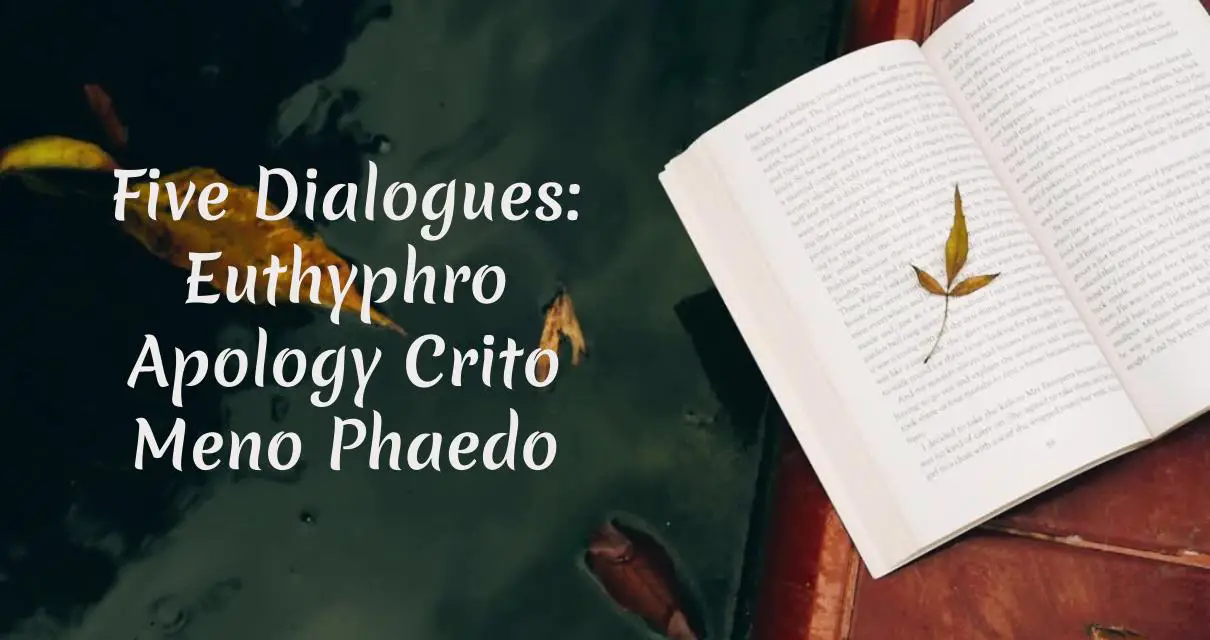Five Dialogues: Euthyphro Apology Crito Meno Phaedo is about a collection of Socratic dialogues by the ancient Greek philosopher Plato. These dialogues explore various philosophical and ethical questions through conversations between Socrates and his contemporaries. Each dialogue presents a distinct theme, such as piety, justice, or the soul's immortality, providing a deep insight into the thoughts of one of history's most influential thinkers.
Table of Content
Five Dialogues: Euthyphro Apology Crito Meno Phaedo Book Summary
Euthyphro: Socrates encounters Euthyphro, a religious expert, and challenges him to define piety. Euthyphro provides several definitions, but Socrates dismantles each one, leaving the question unanswered.
Apology: Socrates defends himself in court against charges of impiety and corrupting the youth. He delivers a profound speech, claiming that his wisdom lies in knowing that he knows nothing. The jury finds him guilty, and Socrates is sentenced to death.
Crito: Socrates engages in a dialogue with his friend Crito, who urges him to escape from prison. Socrates, however, argues that it would be unjust to evade his punishment and chooses to accept his fate, leading to his peaceful execution.
Meno: Socrates and Meno debate whether virtue can be taught. They conclude that it may be a kind of wisdom, but their discussion fails to produce a clear answer, suggesting that true understanding of virtue eludes them both.
Phaedo: Socrates discusses the nature of the soul and its immortality with his friends on the day of his execution. He presents several arguments for the soul's eternal existence and, as he drinks the hemlock, he seems confident and at peace with his impending death.
Five Dialogues: Euthyphro Apology Crito Meno Phaedo Quotes
- Courage is knowing what not to fear.
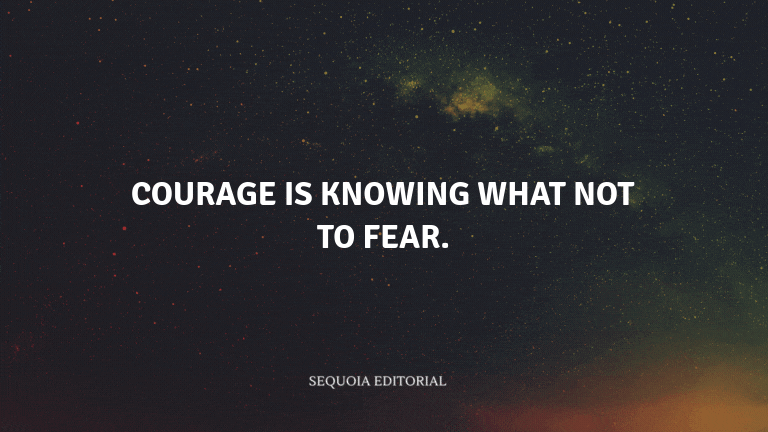
- The only true wisdom is in knowing you know nothing.
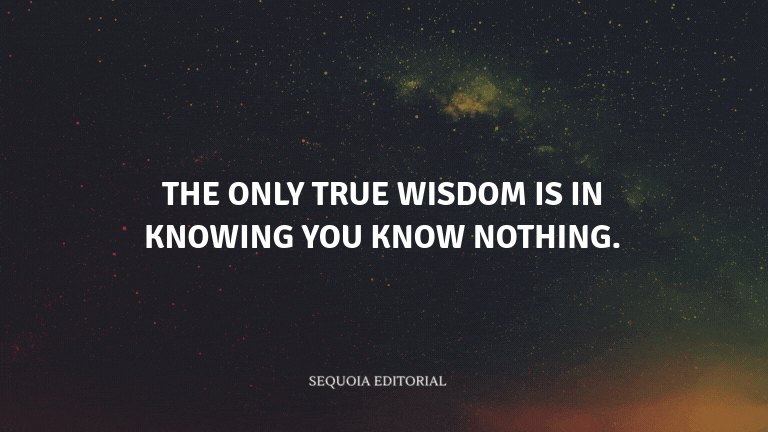
- I am the wisest man alive, for I know one thing, and that is that I know nothing.
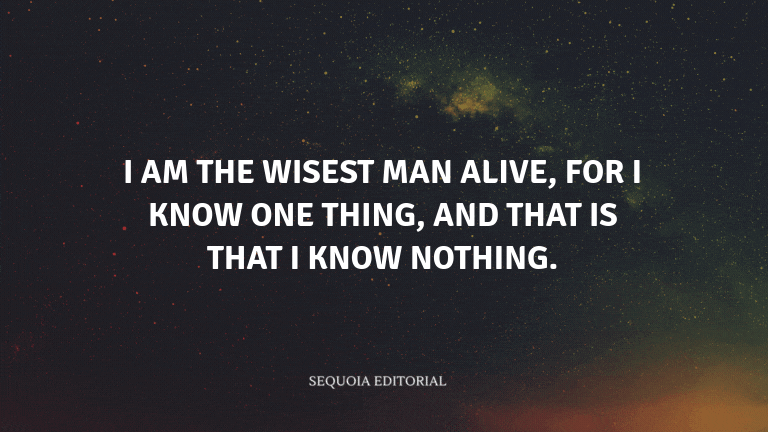
- He who commits injustice is ever made more wretched than he who suffers it.
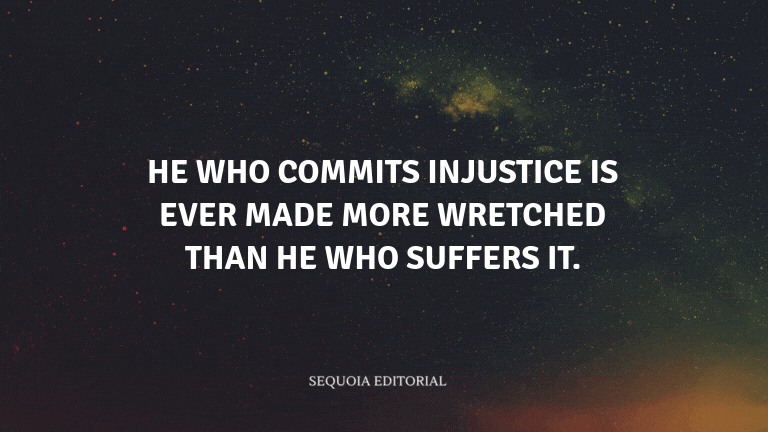
- The unexamined life is not worth living.

Five Dialogues: Euthyphro Apology Crito Meno Phaedo Ending Explained
At the end of Five Dialogues: Euthyphro Apology Crito Meno Phaedo, Socrates's life comes to a poignant close. He drinks the hemlock, a deadly poison, as he has been sentenced to death by the Athenian court.
His friends are with him, and they engage in a final discussion about the immortality of the soul. Socrates maintains his composure and philosophical certainty, expressing his belief that death is the beginning of a new journey for the soul.
With his last words, he instructs his followers to pay a debt to the god Asclepius. The dialogue ends with a mix of sorrow and reverence for the man who has epitomized the pursuit of wisdom and truth.
Characters in book Five Dialogues: Euthyphro Apology Crito Meno Phaedo
- Socrates: The central figure in all five dialogues, known for his method of questioning to bring out the truth.
- Euthyphro: A young man who claims to understand the nature of piety and is in conversation with Socrates about it.
- Apology: The dialogue takes place during Socrates' trial for impiety and corrupting the youth of Athens.
- Crito: A conversation between Socrates and his friend Crito in prison, discussing whether or not Socrates should escape.
- Meno: A discussion between Socrates and Meno on the nature of virtue and whether it can be taught.
- Phaedo: The final dialogue, which describes the last moments of Socrates' life and his thoughts on the immortality of the soul.
- Minor Characters: Various other interlocutors who take part in the dialogues and contribute to the philosophical discussions.
Key Lessons
- Question Everything: True wisdom lies in acknowledging the limits of one's own knowledge and constantly examining beliefs and assumptions.
- Value of Virtue: The pursuit and practice of virtue are essential to living a good and meaningful life, regardless of whether virtue can be explicitly taught.
- Moral Responsibility: Upholding one's moral principles and accepting the consequences of one's actions are fundamental to personal integrity and justice.
- Preparation for Death: Contemplating the nature of existence and the afterlife is important, as it can lead to a peaceful and accepting attitude towards mortality.
- Seeking Understanding: The process of engaging in philosophical inquiry is as important as any specific answer, as it leads to self-awareness and intellectual growth.
My Personal Opinion
Is Five Dialogues: Euthyphro Apology Crito Meno Phaedo worth reading? I would say Yes, I found it to be a profoundly thought-provoking collection. The dialogues are a testament to Socrates' enduring legacy and offer a glimpse into the foundations of Western philosophy.
I was captivated by Socrates' relentless pursuit of truth and his unwavering commitment to his principles, even in the face of death. The depth of the philosophical inquiries is remarkable, and they continue to be relevant to modern-day discussions on ethics and justice.
On the flip side, the dense nature of the philosophical arguments may be challenging for readers new to philosophical texts. Five Dialogues is best suited for those with an interest in philosophy or a willingness to engage with complex ideas. It is a must-read for anyone seeking to understand the origins of critical thinking and moral reasoning.
